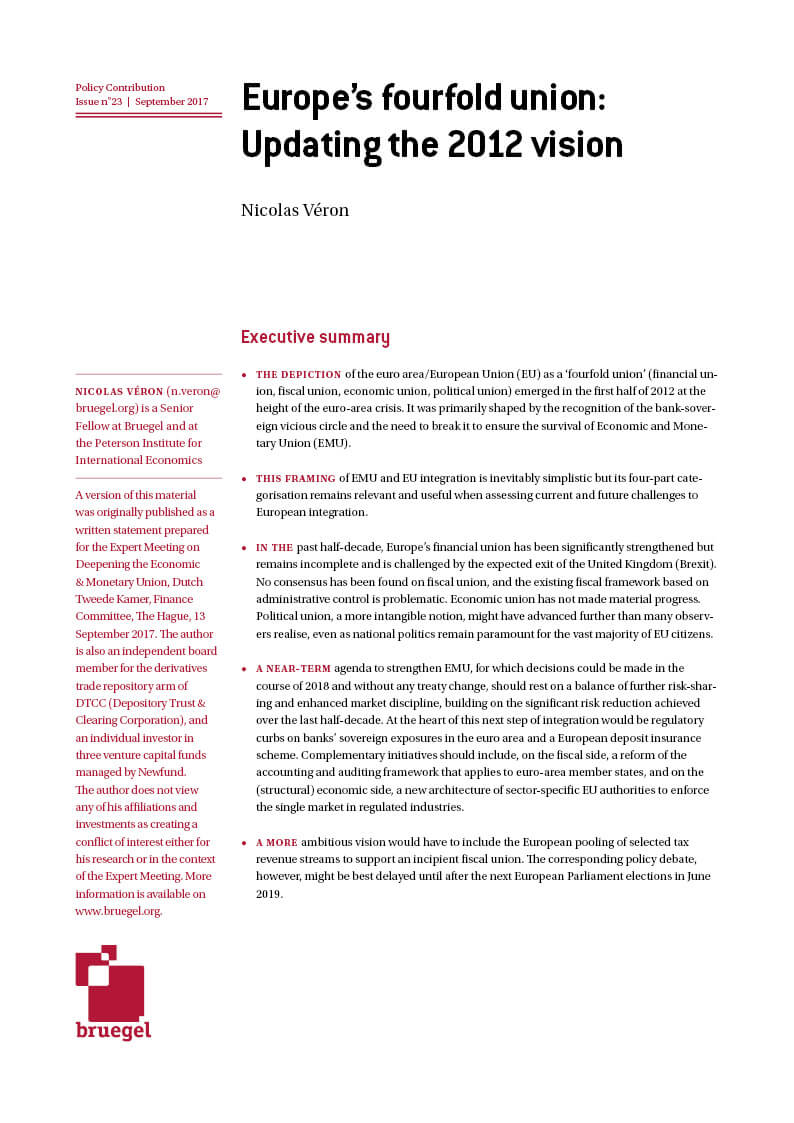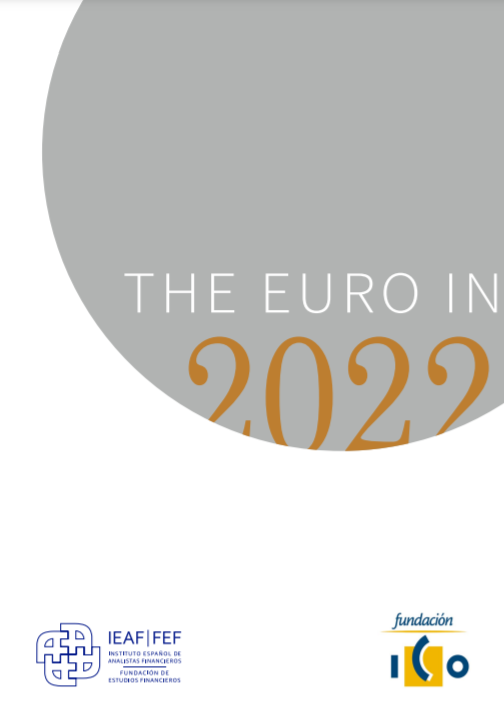Policy Contribution
Europe’s fourfold union: Updating the 2012 vision
The depiction of the euro area/European Union (EU) as a ‘fourfold union’ emerged in the first half of 2012 at the height of the euro-area crisis. In the past half-decade, Europe’s financial union has been significantly strengthened but remains incomplete and is challenged by Brexit. No consensus has been found on fiscal union and economic union has not made material progress, but political union might have advanced further than many observers realize.
A version of this material was originally published as a written statement prepared for the Expert Meeting on Deepening the Economic & Monetary Union, Dutch Tweede Kamer, Finance Committee, The Hague, 13 September 2017.
The depiction of the euro area/European Union (EU) as a ‘fourfold union’ (financial union, fiscal union, economic union, political union) emerged in the first half of 2012 at the height of the euro-area crisis. It was primarily shaped by the recognition of the bank-sovereign vicious circle and the need to break it to ensure the survival of Economic and Monetary Union (EMU).
This framing of EMU and EU integration is inevitably simplistic but its four-part categorisation remains relevant and useful when assessing current and future challenges to European integration.
In the past half-decade, Europe’s financial union has been significantly strengthened but remains incomplete and is challenged by the expected exit of the United Kingdom (Brexit). No consensus has been found on fiscal union, and the existing fiscal framework based on administrative control is problematic. Economic union has not made material progress. Political union, a more intangible notion, might have advanced further than many observers realise, even as national politics remain paramount for the vast majority of EU citizens.
A near-term agenda to strengthen EMU, for which decisions could be made in the course of 2018 and without any treaty change, should rest on a balance of further risk-sharing and enhanced market discipline, building on the significant risk reduction achieved over the last half-decade. At the heart of this next step of integration would be regulatory curbs on banks’ sovereign exposures in the euro area and a European deposit insurance scheme. Complementary initiatives should include, on the fiscal side, a reform of the accounting and auditing framework that applies to euro-area member states, and on the (structural) economic side, a new architecture of sector-specific EU authorities to enforce the single market in regulated industries.












